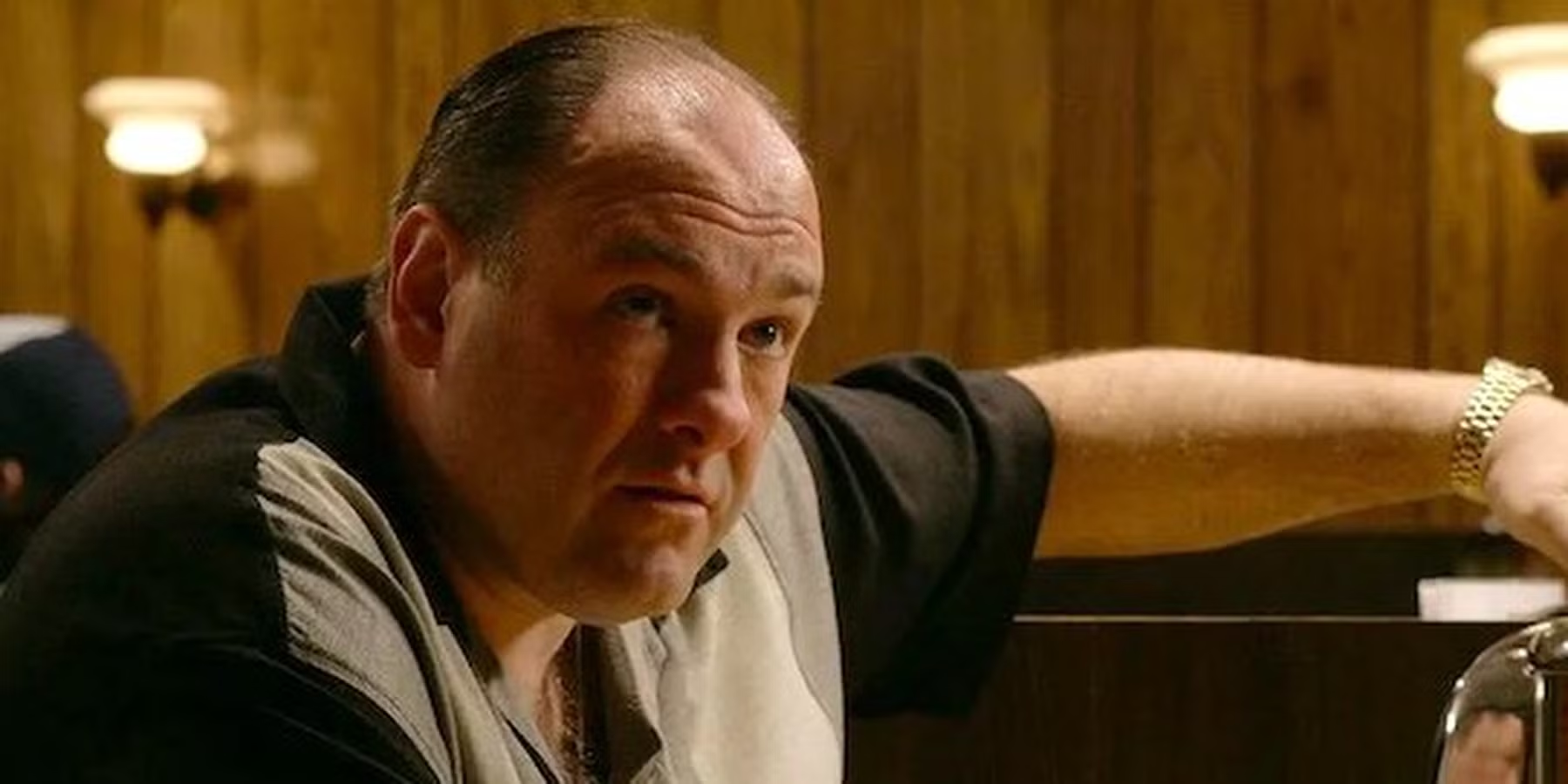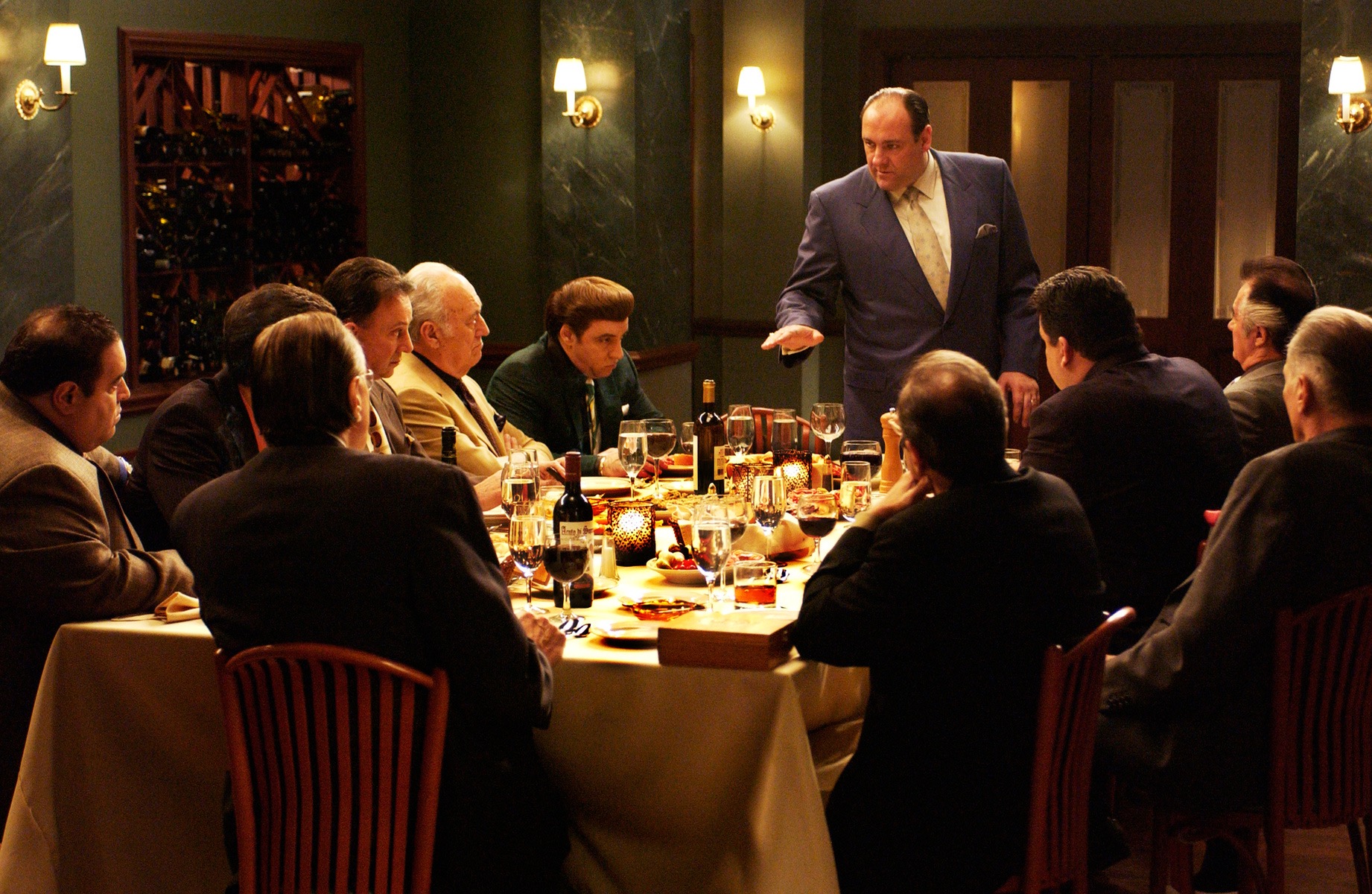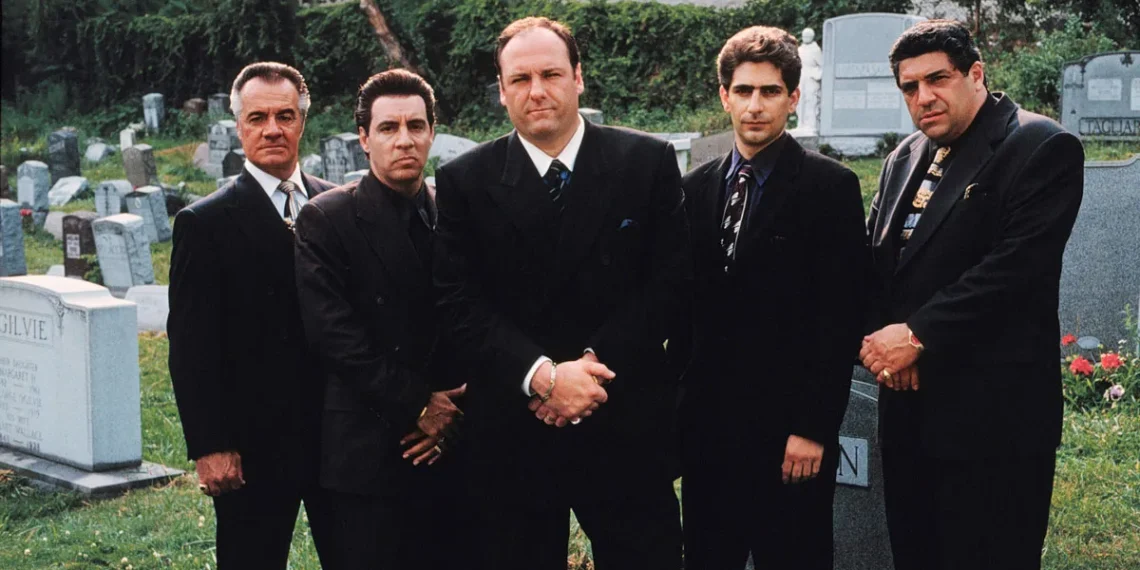The final moments of The Sopranos remain some of the most debated and analyzed in television history. The 2007 series finale, “Made in America,” concluded with a seemingly abrupt cut to black, leaving audiences questioning whether Tony Soprano, the show’s antihero, had met his end. Fifteen years later, viewers still search for answers about what truly happened when the screen went dark.
Over its six-season run, The Sopranos introduced us to Tony Soprano, a mob boss struggling to juggle his criminal empire and family life. Its complex characters, high-stakes drama, and raw, emotional storylines delighted audiences. From 1999 to 2007, viewers became invested in Tony’s journey, which led to the groundbreaking finale, where Tony’s fate was left uncertain.
In the closing episode, Tony has a family dinner at Holsten’s Diner with his wife Carmela, their son A.J., and their daughter Meadow, who is on her way. As the tension builds, shady figures begin to walk into the diner, with one man in particular drawing Tony’s attention. Just as the scene reaches its peak, the screen suddenly cuts to black. The question remains: did Tony die?

The Sopranos Ending Explained
The finale of The Sopranos sees Tony interacting with various family members and friends, reflecting on his past and his future. The episode carries a profound sense of time and mortality, partly inspired by the 1968 film 2001: A Space Odyssey. In that film, an astronaut witnesses potential future versions of himself, a concept that resonated with creator David Chase when crafting the finale.
Tony’s actions in the final episode are deeply introspective. He visits his sister Janice, who is mourning the death of her husband, Bobby Baccalieri. He also visits his Uncle Junior, who is now in a nursing home, a far cry from the dangerous man Tony once feared. This shift in perspective demonstrates Tony’s internal evolution, as he comes to terms with his past.
Later, Tony organizes a successful hit on his rival, Phil Leotardo. Following this, he heads to Holsten’s Diner to meet his family. As the Soprano family gathers, the presence of various shady characters, including the man in the “Members Only” jacket, raises suspicion. As Don’t Stop Believin’ by Journey plays on the diner jukebox, the tension mounts, leading to the iconic cut to black.
Tony’s Fate: Did He Die?
The biggest question after The Sopranos finale is whether Tony Soprano died when the screen cut to black. Fans have debated this for years, and creator David Chase has given subtle hints but never provided a definitive answer. In a 2019 interview, Chase alluded to Tony’s death, explaining that he had considered a death scene for Tony years before the series ended. However, he chose not to include it.
Chase further expanded on this notion in a 2021 interview, revealing that his original vision for the final scene involved Tony returning from a meeting in New York. This meeting, he said, would have been Tony’s last, implying that Tony would be killed during it. But instead of explicitly depicting Tony’s death, Chase chose the more ambiguous and mysterious cut to black.
Perhaps the clearest indication that Tony’s death was part of the show’s final moments came in the 2024 documentary Wise Guy: David Chase and The Sopranos. During the documentary, Chase referenced a scene from the second season of The Sopranos in which A.J. discusses how the color black represents death. This foreshadowing, coupled with the dramatic cut to black, led many to believe that Tony’s story ended that fateful night.
In the same documentary, Chase stated, “The truth is,” before the screen once again cut to black, mirroring the series finale. The silence following this statement only deepens the mystery and leaves the question of Tony’s fate unresolved.

Foreshadowing Tony’s Fate
Several clues throughout The Sopranos hint at Tony’s death, including the off-screen death of Adriana. Creator David Chase admitted that showing Adriana’s death felt too difficult, reflecting a similar approach to Tony’s ambiguous fate.
The song Don’t Stop Believin’ by Journey, playing in the background during the diner scene, symbolizes life’s continuity, even after individual lives end.
The “Members Only” jacket worn by a suspicious diner character suggests possible danger. Some theories claim he kills Tony, drawing influence from The Godfather‘s famous bathroom assassination scene, which further suggests Tony’s potential death.
Cast Reactions to the Finale
The unexpected ending of The Sopranos finale surprised even its cast members. Michael Imperioli, who played Christopher Moltisanti, found the cut to black “strange” and unexpected.
Drea de Matteo, who played Adriana, initially thought her TV had malfunctioned but later realized it was intentional. She understood David Chase’s desire to leave the audience in suspense about Tony’s fate.
Edie Falco, who portrayed Carmela, initially thought pages were missing from the script, but later appreciated the deeper significance of the ending. She trusted Chase’s vision.
Jamie-Lynn Sigler, playing Meadow, felt the open-ended finale was perfect, allowing viewers to interpret Tony’s fate. She knew it would never fully satisfy everyone.
Robert Iler, who played A.J., pointed out that the ambiguous finale kept The Sopranos alive in popular culture, sparking ongoing discussions.
Lorraine Bracco, who played Dr. Melfi, revealed that even James Gandolfini, who portrayed Tony, was surprised by the finale’s abrupt ending, asking, “That’s it?”

The Enduring Mystery of Tony’s Fate
As fans continue to debate Tony’s fate, The Sopranos stands as one of the most influential and groundbreaking television series of all time. The series finale, with its ambiguous cut to black, remains a hallmark of storytelling that defies easy answers. David Chase’s decision to leave Tony’s fate open to interpretation was not just a choice to surprise the audience, but also a way to reflect the uncertainty and complexity of life itself.
While we may never know definitively whether Tony Soprano died in that diner, the legacy of The Sopranos lives on, with its ending continuing to delight and inspire discussions among fans and critics alike. As long as the debate persists, The Sopranos will remain a defining moment in television history, leaving viewers with the unforgettable feeling that, sometimes, not knowing is the most profound answer of all.





